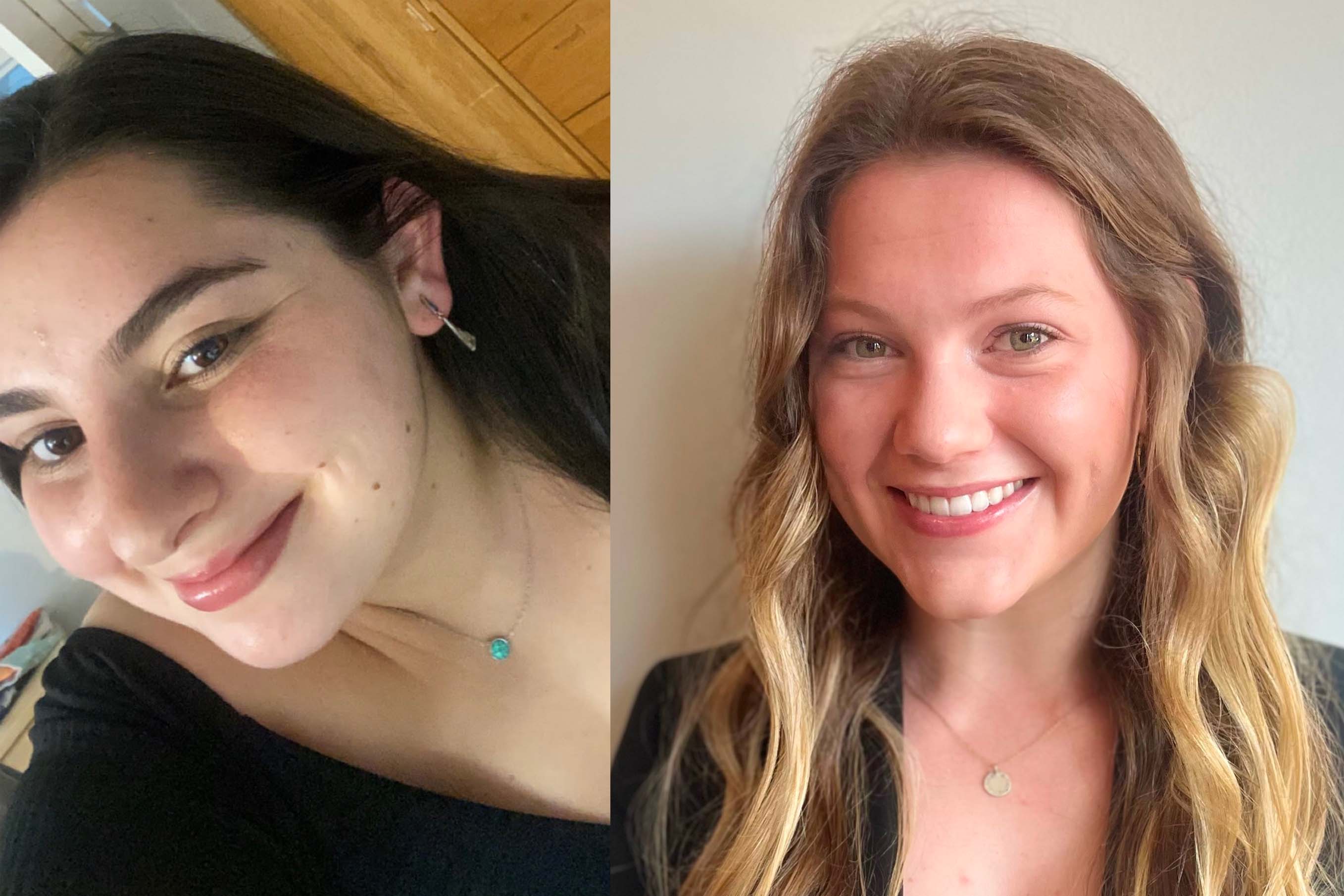After studying remotely during her first year at GW, Lily Reck, a rising junior majoring in cognitive neuroscience and minoring in sociology and psychological and brain sciences, wanted to make up for lost lab time. As a research assistant in Associate Professor of Cognitive Neuroscience Myeong-Ho Sohn’s lab, she was leading a project analyzing the relationship between cognitive conflict and experienced emotion. With summer approaching, she was hoping to find a way to continue her research on campus rather than return to her Pennsylvania home.
That’s when she discovered the Columbian College STEM Summer Laboratory Internship Program, a new opportunity for undergraduate students in STEM departments to spend the summer on campus conducting high-level experiments in faculty labs. With research funding and a summer living stipend, the program allows up to three rising juniors and seniors chosen from STEM fields to work closely with faculty and graduate assistants on scientific projects while honing their professional skills.
“The CCAS Summer Lab Internship Program expands opportunities for our STEM students to participate in faculty research, thus gaining important experience and skills that prepare them for future opportunities in graduate school, medical school or other areas of STEM,” said Associate Dean of Undergraduate Studies Rachel Riedner.
Like Reck, Nora Houseman, a rising senior chemistry major, was eager to conduct summer research. She first joined Assistant Professor of Chemistry Joseph Meisel’s research group in 2021. Due to the limitations of the COVID-19 pandemic, Houseman had scant hands-on lab experience, and spent her first semester largely familiarizing herself with the equipment. “It was definitely intimidating,” Houseman recalled. “It was like walking around in a maze.”
Today, with mentoring from Meisel and his graduate student researchers, Houseman feels right at-home among the beakers and vials of a chemistry lab. She’s currently designing new molecules that may help target cancer and infectious disease pathways. Instead of returning to her Boulder, Colo., home at the end of the spring semester, Houseman, through the STEM internship program, stayed in the lab for the summer.
“There’s no substitute for spending 30 or 40 hours a week on research and learning by doing things myself, making mistakes and asking questions,” she said. “I needed an opportunity to stay here and grow in the lab.”
In the summer labs, students benefit from more time with faculty and greater exposure to the culture of scientific research. Likewise, faculty receive undergraduate student support for their projects. “The summer is an ideal time for undergraduates to develop as researchers,” Meisel said. “The CCAS STEM Summer Lab Internship Program provides the financial support that affords students with time to focus on research and with access to faculty that are eager to mentor burgeoning scientists.”
The program allowed Reck to dive deeper into her research project while also collaborating with faculty, post-doctoral fellows and graduate students.
“I wanted to go above and beyond in-class academic work and get more in-depth analysis,” Reck said. “In the summer lab, I worked independently but I also got so much direct feedback. It was an incredible experience.”
Building on Sohn’s research, Reck is examining data from GW student volunteers who were asked to complete cognitive tasks of varying difficulty—identifying the ink color of a word while ignoring the word itself, such as “green” written in red ink. In between these color detection tests, participants would complete other tasks testing their current emotional state of being.
Previously, studies concluded that people detect positive emotions faster after completing challenging tasks. But the same pattern didn’t correspond to easier tasks or negative emotions. Reck is expanding the experiment to understand if the rapidly-identified positive emotions meant the volunteers were actually feeling happy after completing hard tasks or if other factors were at play.
The results could offer insights into how people respond to conflict, and help reveal how cognitive ability and emotions interact to affect performance on challenges like college tests or work-related assignments.
After designing the experiment in the summer lab, Reck is prepared to begin data collection and analysis in the fall. Her project “has qualities of graduate level dissertations,” Sohn said. “It requires programming, coordinating data collection, data analysis and ultimately writing a manuscript.” Meanwhile, Reck will attend the prestigious Psychonomic Society Annual Meeting with Sohn in the fall. “I am passionate about research and this is truly an unbelievable opportunity,” she said.
In Meisel’s chemistry lab, Houseman is using organic synthesis techniques to design new molecules that bind to protein surfaces. Ultimately, her work will help expand the pathways for drugs to reach proteins and potentially treat diseases like cancer.
A certified EMT and a member of the GW gymnastics team, Houseman said the intensive lab experience she gained through the STEM summer program will prepare her for future chemistry experiments and her eventual plans to attend medical school.
“It was very important to me that I pursue an opportunity to do research full time—even if just for a summer,” she said. “With this fellowship I have been able to push my project further, learn about the demands of research and expose myself more to the work of professional and graduate-level chemists. It’s been a learning and growing experience.”


